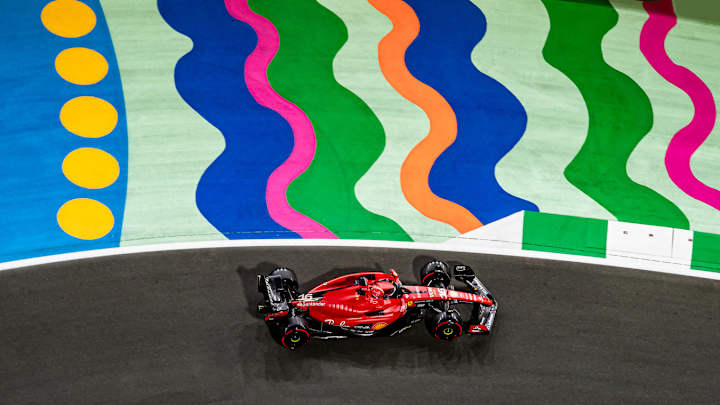F1 CEO Looks For Major Weekend Changeup As Fans Beg For Better Racing

In a bold move to reshape the world of Formula 1, CEO Stefano Domenicali has hinted at the possibility of eliminating practice sessions, claiming they don't resonate well with fans. Since a slight overhaul in 2021, the management behind F1 has been looking at reshaping its race weekends to improve the entertainment factor for viewers with the addition of sprint races.
The Advent of Sprint Races in Formula 1
Initially, Formula 1 launched with a modest three sprint events per season. For these select weekends, qualifying was moved to Friday and a practice session was effectively axed to make room for it. The sprint race then took place on the Saturday, and existed as simply a shorter version of the race on Sunday.
The concept of the sprint race was reviewed negatively by fans for the most part, but the saving grace of this idea was how it removed one of the Practice Sessions from the weekend, replacing it with something that was being discussed a lot by enthusiasts of the sport, and therefore viewing figures were higher.
MotoGP Takes Inspiration from F1's Sprint Races
MotoGP was impressed with the results of the F1 sprint races, and when Domenicali attended the opening round of the MotoGP weekend at Portimao, the motorcycle racing series announced their plans to incorporate sprint races in their 2023 calendar.
In an interview with Portuguese channel Sport TV, the Formula 1 CEO expressed his support for canceling practice sessions altogether in F1, arguing that they primarily benefit engineers and don't appeal to fans.
“I am a supporter of the cancellation of free practice sessions, which are of great use to the engineers, but that the public doesn’t like,” he told the channel.
⚠️F1 CEO Stefano Domenicali on canceling Free Practice sessions from racing weekends:
— F1FAll (@F1fAllOfficial) March 27, 2023
“I am a supporter of the cancellation of free practice sessions, which are of great use to the engineers, but that the public doesn’t like".#F1 #AustralianGP pic.twitter.com/BH72MMeeUL
Drivers' Concerns and the Business Perspective
Reducing the uncompetitive time on track will bring on a swift "no" from drivers who will take any second they have to practice their craft. But F1 will always be looking to increase the entertainment potential each weekend and, as we all expected, this means reducing the practice sessions.
But look at it this way, less practice means hopefully more movement between the drivers during the race day (or whatever they're replacing the practice sessions with). And this can only result in better racing.
The Future of Formula 1: A Balancing Act
In pursuit of an optimal fan experience, Formula 1 must strike a delicate balance between maintaining the integrity of the sport and catering to viewers' preferences. While scrapping practice sessions could generate more excitement, it remains to be seen how such a move would impact the sport's competitive nature and the drivers' ability to fine-tune their performance. If this is even something we want as viewers anyway?
As the world of motorsports continues to evolve, this is becoming a very interesting time for fans and journalists of F1. There will be times of annoyance, sure, but hopefully, this balance will result in a brilliant sport everyone can enjoy.
